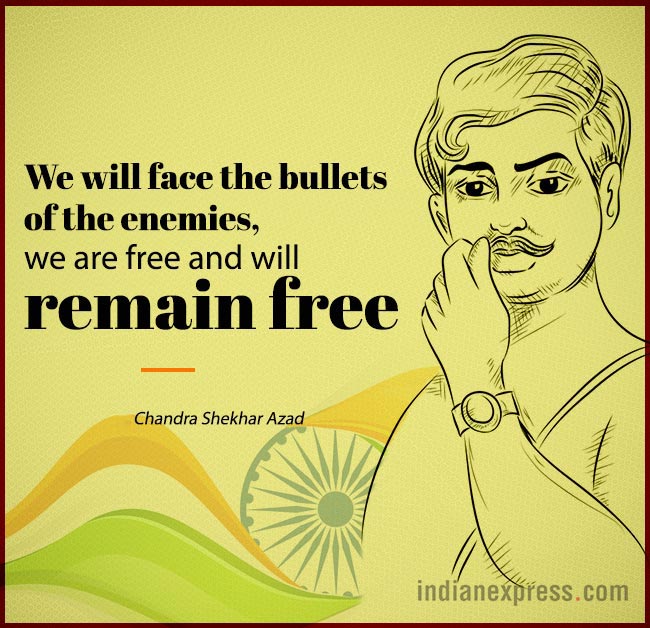
Chandra Shekhar Tiwari, known popularly as Chandrashekhar Azad (23 July 1906 — 27 February 1931), was an Indian revolutionary who reorganized the Hindustan Republican Association (HRA) under its new name of Hindustan Socialist Republican Association (HSRA).Azad was born as on 23 July 1906 in Bhabhra village as Chandra Shekhar Tiwari, in the princely-state of Alirajpur. In 1921, when the Non-Cooperation Movement was at its height, Chandra Shekhar, then a 15-year-old student, joined. As a result, he was arrested on 20 December. On being presented before the district magistrate Justice Reverend Tomson Kregat a week later, he gave his name as "Azad" (The Free), his father's name as "Swatantrata" (Independence) and his residence as "Jail". The angered magistrate ordered him to detained to jail for 23 weeks and ordered be punished with 15 lashes a day.
The Hindustan Republican Association (HRA) was formed by Bismil, Jogesh Chandra Chatterjee, Sachindra Nath Sanyal and Sachindra Nath Bakshi in 1923. In the aftermath of the Kakori train robbery in 1925, the British clamped down on revolutionary activities. Prasad, Ashfaq Ulla Khan, Thakur Roshan Singh and Rajendra Nath Lahiri were sentenced to death for their participation. Azad, Keshab Chakravarthy and Murari Sharma evaded capture. Azad, Bhagat Singh along with other revolutionaries secretly reorganized the Hindustan Republican Association (HRA) as the Hindustan Socialist Republican Association (HSRA) on 9 September 1928.[9] so as to achieve their primary aim of an independent India based on socialist principle.
A plane is always safe on the ground, but it is not made for that. Always take some meaningful risks in life to achieve great heights. -AZAD
At the age of 24, he chose to make the supreme sacrifice rather than being caught by the British police in Allahabad on 27 February 1931. The police surrounded him in a park after an informant told them about his whereabouts. After a shootout, Azad chose to shoot himself dead with his last bullet, staying true to his pledge to never be captured alive by the British. The Colt pistol of Chandra Shekhar Azad has been displayed at the Allahabad Museum.


